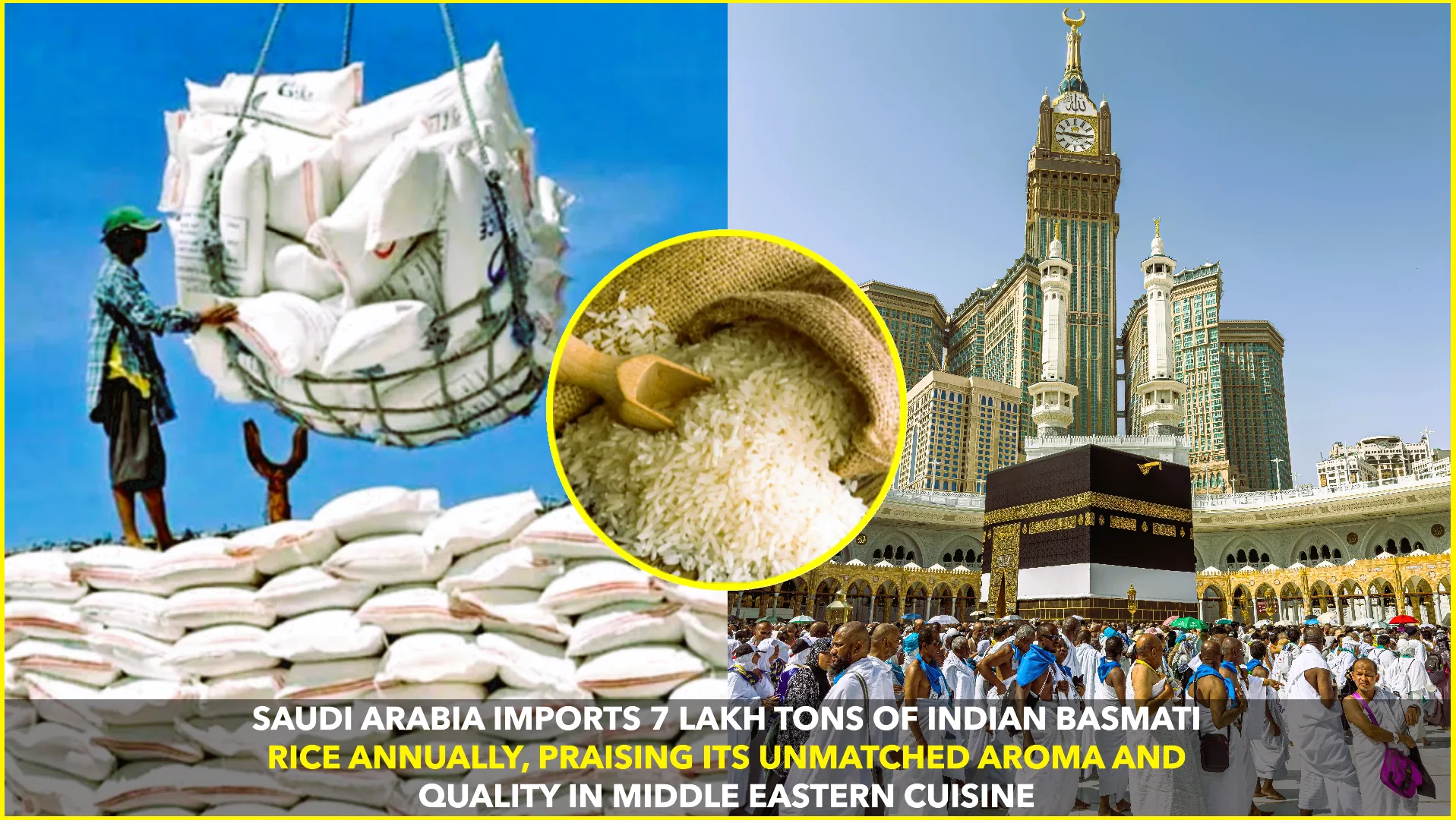New Delhi, July, 2025:
India’s premium Basmati rice continues to captivate global taste buds, with Saudi Arabia emerging as one of its largest importers. According to the Agricultural and Processed Food Products Export Development Authority (APEDA), Saudi Arabia imports close to 700,000 metric tons of Indian Basmati rice annually, reflecting the grain’s enduring appeal in the Gulf nation.
Renowned for its long grain, fluffy texture, and distinctive aroma, Indian Basmati rice holds a premium place in international markets. Among all global buyers, Saudi Arabia has consistently maintained its position as a top importer, making it a vital trading partner in India’s agricultural export economy.
Cultural and Culinary Connection
The popularity of Basmati rice in Saudi Arabia stems not just from its quality, but also from its central role in the country’s cuisine. Traditional Saudi dishes like Kabsa, Mandi, and Bukhari rice heavily rely on Basmati due to its ability to absorb spices and maintain texture after cooking. Indian rice varieties, particularly Basmati grown in the states of Punjab, Haryana, and western Uttar Pradesh, are highly preferred in Middle Eastern households and restaurants.
Economic Impact and Trade Value
As per APEDA’s 2024-25 data, India exported over 4.5 million tons of Basmati rice globally, with Saudi Arabia accounting for approximately 15% of this volume. The value of exports to Saudi Arabia is estimated at over $900 million annually, making it one of the highest-value agricultural exports from India to the Kingdom.
Despite occasional trade fluctuations due to freight costs, climate conditions, or international regulations, the demand for Indian Basmati in Saudi Arabia has remained steady. Experts attribute this to the product’s brand equity built over decades and the trust in Indian agricultural quality standards.
Strengthening Indo-Saudi Agricultural Ties
India and Saudi Arabia’s agri-trade relationship is part of a broader bilateral engagement. In recent years, the two nations have expanded their partnership to include collaborations in agri-tech, food security, and sustainability.
A senior official at APEDA stated, “Saudi Arabia values India’s Basmati rice not just for its sensory appeal but also for the transparency and traceability we offer in our supply chain. This trust has translated into stable, long-term trade partnerships.”
Challenges and Way Forward
While Basmati rice exports are currently thriving, industry experts warn that climate change, pesticide regulation compliance, and increasing competition from Pakistan—India’s only major competitor in the Basmati category—could impact future growth.
Efforts are ongoing to promote sustainable farming practices, improve rice yield, and ensure alignment with international quality norms. In 2024, India introduced stricter guidelines for Basmati exports, including pesticide residue limits and traceability codes, to boost global trust.
Looking ahead, stakeholders are optimistic. “As long as India maintains its quality and competitive pricing, the aroma of Basmati will continue to waft into Saudi kitchens,” said trade analyst Meera Bhattacharya.
Sources:
- APEDA (Agricultural and Processed Food Products Export Development Authority)
- Ministry of Commerce & Industry, Government of India
- Business Standard, July 2025
- The Hindu BusinessLine










